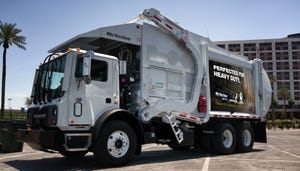legislation: Protect Yourself with Pollution Liability Insurance
June 1, 1998
Pollution liability insurance coverage is better and cheaper than ever.
For almost 20 years, the buying and selling of real estate and businesses has been made more difficult, if not impossible, by environmental contamination concerns. A buyer that does not fully understand the pollution risks and carefully arrange responsibility for potential cleanup costs is utterly foolish.
Questions about environmental liability and remediation costs have led to wrangling over "as-is" clauses and indemnity agreements in sales contracts. These days, however, environmental risk can be managed more effectively with pollution liability insurance.
Several insurers now offer policies that protect parties who justifiably relied on a clean Phase I environmental assessment but who later discovered unreported or latent contamination. Phase I surveys, which often are limited to a mere visual inspection of the property and a search of public records, can be unreliable.
Environmental assessment coverage helps potentially responsible parties avoid having to pay remediation costs. Property owners also may buy coverage for the cleanup costs of contamination that existed before the policy's effective date, for conditions (on-site and off-site) that arise during the policy term, for leaking underground storage tanks and for harm to nearby residents and property owners and other third parties.
Policies can include payments and reimbursement for investigation, cleanup, property damage, bodily injury and legal defense. Maximum amounts payable under the policies are about $10 million, but larger coverages are available.
As with all kinds of insurance, choosing a higher deductible will reduce the premium. Depending on the type of business or activity, self-insuring for amounts between $10,000 and $250,000 may make sense. At a certain point, however, even where a business can afford a higher deductible, it may not reduce premiums appreciably.
For the past several years, pollution liability insurance premiums have dropped and coverage has expanded. The reasons: First, insurers have gotten better at assessing the risks. Second, more insurers have entered the market.
Take, for example, a shopping center site that boasts a clean Phase I analysis. For a policy that covers both past activity and future occurrences, including liability for damage to nearby properties, the owner can expect to pay about $20,000.
Businesses, which may be familiar with standardized commercial general liability policies, must be more careful with pollution liability policies. Coverages for contamination cleanup and liability can vary considerably from insurer to insurer.
Some businesses and property owners can negotiate beneficial modifications in coverages successfully by comparing proposals from competing carriers.
For the most part, policies are written on a "claims-made" basis for terms from one to several years. A claims-made policy requires the insured party to discover the pollution and to notify the insurer within the policy period.
For an additional premium, some policies give the insured party more time to report any occurrences of contamination. Thus, if the policy expires or the insurer refuses to renew, the insured still will be covered for occurrences during the policy term even if word reaches the insurer after the end of the policy period.
Some policies allow the insurer to cancel coverage during the policy's term for a variety of reasons. Smart and aggressive business owners try to limit such circumstances to instances of misrepresentation and fraud or non-payment of premium.
The coverage "game" is won or lost in the policy's definitions of crucial words and phrases. For the best protection, "pollution," "conditions," "release," "hazardous substances" and other key concepts should be defined as broadly as the statutes and case law that govern environmental liability issues.
Some policies limit coverage to whatever laws are on the books when the policy takes effect. Other policies will cover liability based on new or changed laws during the term of the policy.
Besides a policy's definitions, another important issue is the coverage that the policy expressly excludes. Pre-existing conditions may not be covered if the contamination could have been avoided by prudent management and supervision. Insurers also may try to exclude conditions that foreseeably result from intentional or illegal acts or omissions by the insured, its employees and agents.
The problem, however, is that environmental laws and court rulings treat entirely innocent acts as culpable misdeeds. Any such exclusion should be limited to situations where an employee acted recklessly or with the intention to cause pollution.
An insured party that, by contract, assumes a potential environmental liability usually cannot rely on its pollution liability policy for coverage of the extra risk.
Parties that agree to indemnify other parties in a transaction may be stuck paying any necessary reimbursement out of their own pockets. The sensible approach is to name the would-be beneficiaries as additional insureds.
Consultants Moore & Associates, Atlanta, has been chosen as the technical consultant to Wisconsin's Newsprint Recycled Content Task Force.
Camp Dresser & McKee's Fresno, Calif., office is providing remedial design and construction management for a groundwater cleanup system at the Fresno sanitary landfill.
Grant More than $7.8 million in California Integrated Waste Management Board (Sacramento) grants were given to California cities and counties to help collect and recycle used motor oil.
Internet Advance Lifts, St. Charles, Ill.: www.AdvanceLifts.com
Internet Freightliner Corp., Portland, Ore.: www.freightliner.com
New Offices BioCorp. Inc., Redondo Beach, Calif., has announced the opening of offices in Albany, N.Y.; Lakehurst, N.J.; Cleveand, Ohio; Minneapolis; Denver; Los Angeles; Vancouver, Canada; and Montreal, Canada.
Van Dyk Baler Corp., Stamford, Conn., has opened a Canadian office in Orangeville, Ontario.
Environmental Resources Management (ERM), Exton, Pa, has opened offices in Columbus, Ga.; and Beaufort and Columbia, S.C. ERM also has increased its Southeast Asian presence with an office in Bogor, Indonesia.
About the Author(s)
You May Also Like




